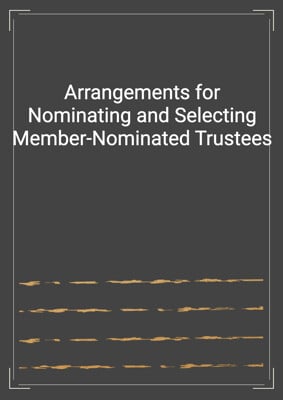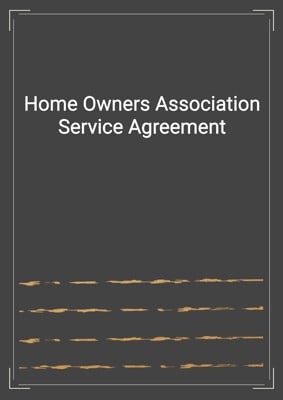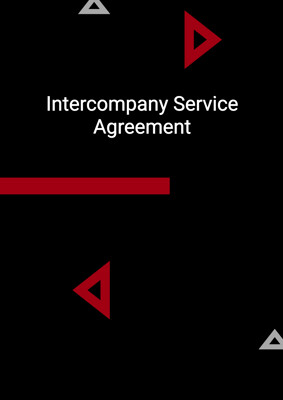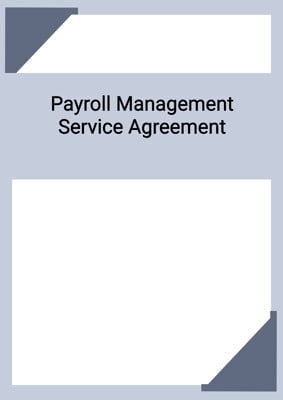How to Tailor the Document for Your Need?
01
Create Document
Fill in the details of the parties. You can click the "Fill with Member’s Information" button to complete it with information saved to your account.
02
Fill Information
Please fill in any additional information by following the step-by-step guide on the left hand side of the preview document and click the "Next" button.
03
Get Document
When you are done, click the "Get Document" button and you can download the document in Word or PDF format.
04
Review Document
Please get all parties to review the document carefully and make any final modifications to ensure that the details are correct before signing the document.
Document Preview
Document Description
The Service Agreement - Day Care is a document that outlines the terms and conditions between the servicer and the customer for the provision of supervised daytime care services for children. This agreement is important as it establishes the rights and responsibilities of both parties and ensures that the services provided meet the needs and expectations of the customer.
The entire document is divided into several sections, each addressing specific aspects of the agreement. The first section, 'Interpretation', provides definitions for key terms used throughout the agreement. This ensures clarity and understanding between the parties.
The second section, 'Servicer Obligations', outlines the responsibilities of the servicer in providing supervised daytime care services. It emphasizes the importance of using appropriately trained staff and delivering the services in a professional and diligent manner.
The third section, 'Servicer Operating Hours and Dates', specifies the operating hours of the servicer's daycare facility and clarifies that the customer is responsible for transportation arrangements.
The fourth section, 'Daycare Service Obligations', details the specific services that the servicer will provide, including placing children into teaching groups, monitoring them at all times, and planning educational and social activities. It also addresses meal preparation and access to drinking water.
The fifth section, 'Activities', allows children to participate in supervised activities organized by the servicer and informs the customers about any special equipment or attire required.
The sixth section, 'Medical Information of Children', covers the administration of medication and the declaration of vaccinations. It clarifies that the servicer is not liable for any illness resulting from a lack of vaccination.
The seventh section, 'Discipline', states that positive discipline will be used instead of corporal punishment.
The eighth section, 'Meeting', allows either party to request a meeting to discuss matters related to the services. The presence of children during the meeting can be agreed upon.
The ninth section, 'Service Fees', specifies the payment terms, including the schedule, invoicing process, and late payment charges. It also addresses expenses and the customer's responsibility to reimburse the servicer for any agreed-upon supplies.
The tenth section, 'Warranties and Indemnities', requires the servicer to promptly notify the customer of any delays, problems, or complaints. It also establishes the customer's obligation to report any defects in the services.
The eleventh section, 'Background Checks', affirms that comprehensive background checks have been conducted on all staff members and declares that no staff member has a criminal history or is listed on any sex-offender registry.
The twelfth section, 'Release of Children', requires the customers to inform the servicer of approved and prohibited persons for picking up the children.
The thirteenth section, 'Emergency Contacts', mandates the provision of emergency contacts for the children and outlines the procedure for contacting the customers in case of an emergency.
The fourteenth section, 'Term and Termination', specifies the duration of the agreement and the conditions for termination by either party. It also addresses the customer's liability for outstanding balances.
The fifteenth section, 'Ownership of Materials', states that any intellectual property developed under the agreement becomes the property of the servicer unless otherwise agreed upon.
The sixteenth section, 'Confidential Information', requires both parties to keep confidential any information disclosed during the agreement and outlines exceptions to this obligation.
The seventeenth section, 'Announcements/Publicity', restricts the making of announcements or disclosures without the prior written approval of all parties.
The eighteenth section, 'Amendment', states that any variation of the agreement must be in writing and signed by the parties.
The nineteenth section, 'Assignment', prohibits the assignment or sub-contracting of the agreement without the written consent of the other party.
The twentieth section, 'Severability', addresses the invalidity or unenforceability of any provision and the negotiation of substitute provisions.
The twenty-first section, 'Further Assurance', requires the parties to perform any further acts or execute additional documents necessary to implement the agreement.
The twenty-second section, 'Warranty of Capacity and Power', represents that each party has the authority, power, and capacity to enter into and carry out its obligations under the agreement.
The twenty-third section, 'Force Majeure', relieves the parties from liability for failure or delay in performing obligations due to causes beyond their control.
The twenty-fourth section, 'No Rights under Contracts for Third Parties', clarifies that only the parties to the agreement have the right to enforce its terms.
The twenty-fifth section, 'Arbitration and Proper Law', encourages the parties to resolve disputes amicably and specifies the proper law governing the agreement.
The twenty-sixth section, 'Notices and Service', outlines the methods and deemed delivery times for serving notices between the parties.
The twenty-seventh section, 'Counterparts', allows the agreement to be executed in multiple counterparts, with each counterpart considered an original document.
How to use this document?
1. Provide information: Enter the servicer's and customer's information, including their principal place of business, in the agreement. This ensures clear identification of both parties.
2. Specify operating hours and dates: Clearly state the operating hours of the servicer's daycare facility and inform the customer that they are responsible for transportation arrangements.
3. Describe daycare service obligations: Clearly outline the services to be provided, including placing children into teaching groups, monitoring them, and planning educational and social activities. Provide a monthly syllabus and a weekly meal timetable upon request.
4. Allow participation in activities: Inform the customers that children are allowed to participate in supervised activities organized by the servicer. Notify them of any special equipment or attire required.
5. Administer medication and declare vaccinations: Agree on the administration of medication as instructed by the customers and declare that the children have received all required vaccinations.
6. Use positive discipline: Emphasize the use of positive discipline instead of corporal punishment in disciplining the children.
7. Schedule meetings: Allow either party to request a meeting to discuss matters related to the services. Agree on the presence or absence of children during the meeting.
8. Establish payment terms: Specify the service fees, including the schedule, invoicing process, and late payment charges. Address any additional expenses and the customer's responsibility to reimburse the servicer for agreed-upon supplies.
9. Report delays and defects: Require the servicer to promptly notify the customer of any delays, problems, or complaints. Establish the customer's obligation to report any defects in the services.
10. Conduct background checks: Affirm that comprehensive background checks have been conducted on all staff members and declare that no staff member has a criminal history or is listed on any sex-offender registry.
11. Approve pick-up persons: Request the customers to inform the servicer of approved persons for picking up the children and any persons who are not allowed to pick them up.
12. Provide emergency contacts: Obtain emergency contacts from the customers and establish the procedure for contacting them in case of an emergency.
13. Define term and termination: Specify the duration of the agreement and the conditions for termination by either party. Address the customer's liability for outstanding balances.
14. Address intellectual property: State that any intellectual property developed under the agreement becomes the property of the servicer unless otherwise agreed upon.
15. Maintain confidentiality: Require both parties to keep confidential any information disclosed during the agreement, with exceptions outlined in the agreement.
16. Obtain approval for announcements/publicity: Restrict the making of announcements or disclosures without the prior written approval of all parties.
17. Allow for amendment: State that any variation of the agreement must be in writing and signed by the parties.
18. Restrict assignment: Prohibit the assignment or sub-contracting of the agreement without the written consent of the other party.
19. Address invalidity or unenforceability: Include a provision for negotiating substitute provisions in case any provision is deemed illegal, void, or unenforceable.
20. Perform further acts if necessary: Require the parties to perform any further acts or execute additional documents necessary to implement the agreement.
21. Ensure capacity and power: Represent that each party has the authority, power, and capacity to enter into and carry out its obligations under the agreement.
22. Account for force majeure: Relieve the parties from liability for failure or delay in performing obligations due to causes beyond their control.
23. Clarify rights under contracts: Specify that only the parties to the agreement have the right to enforce its terms.
24. Encourage amicable dispute resolution: Urge the parties to resolve disputes amicably and specify the proper law governing the agreement.
25. Serve notices properly: Follow the specified methods and deemed delivery times for serving notices between the parties.
26. Execute counterparts: Allow the agreement to be executed in multiple counterparts, with each counterpart considered an original document.
Not the right document?
Don’t worry, we have thousands of documents for you to choose from:


















































































































































































































































